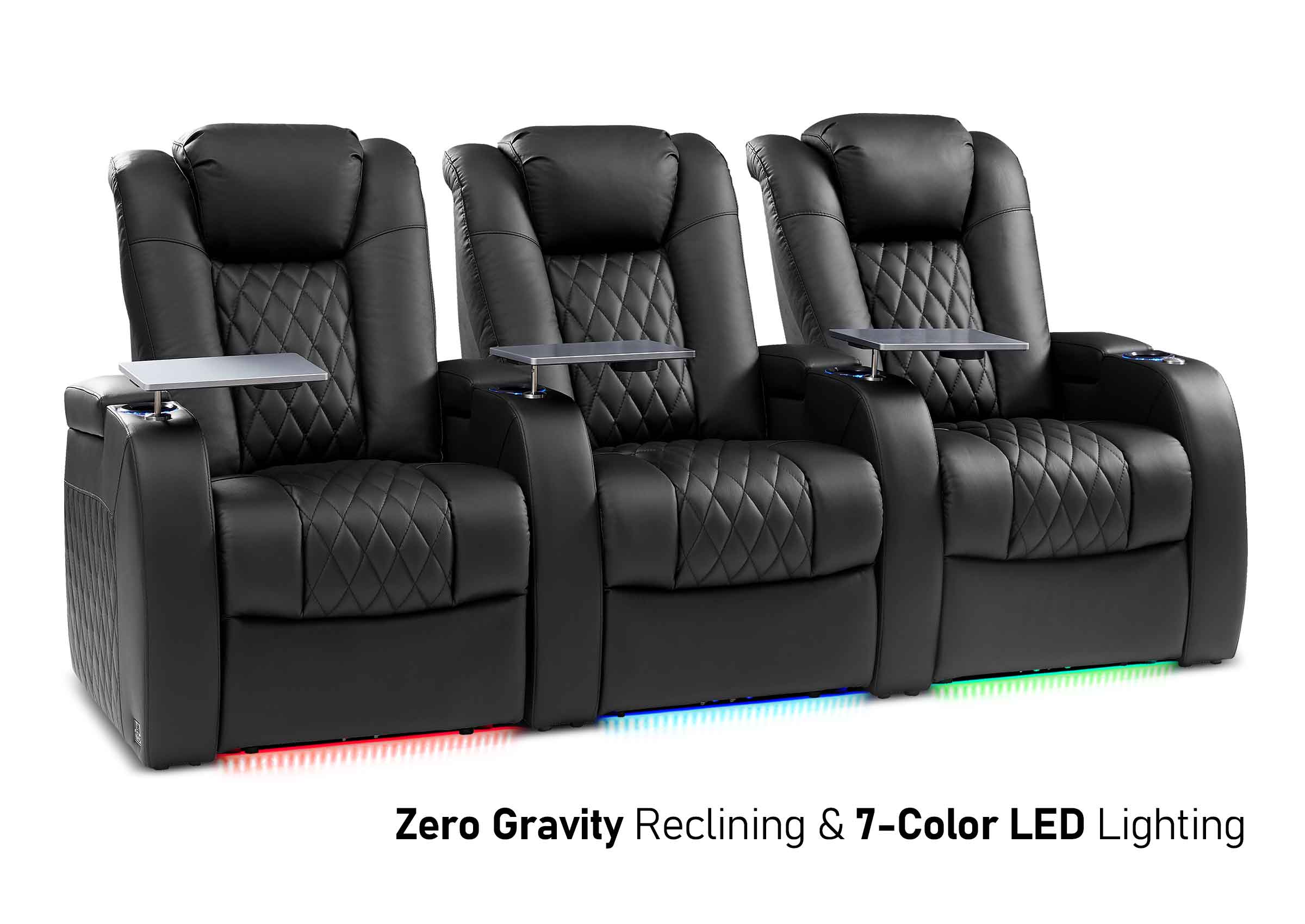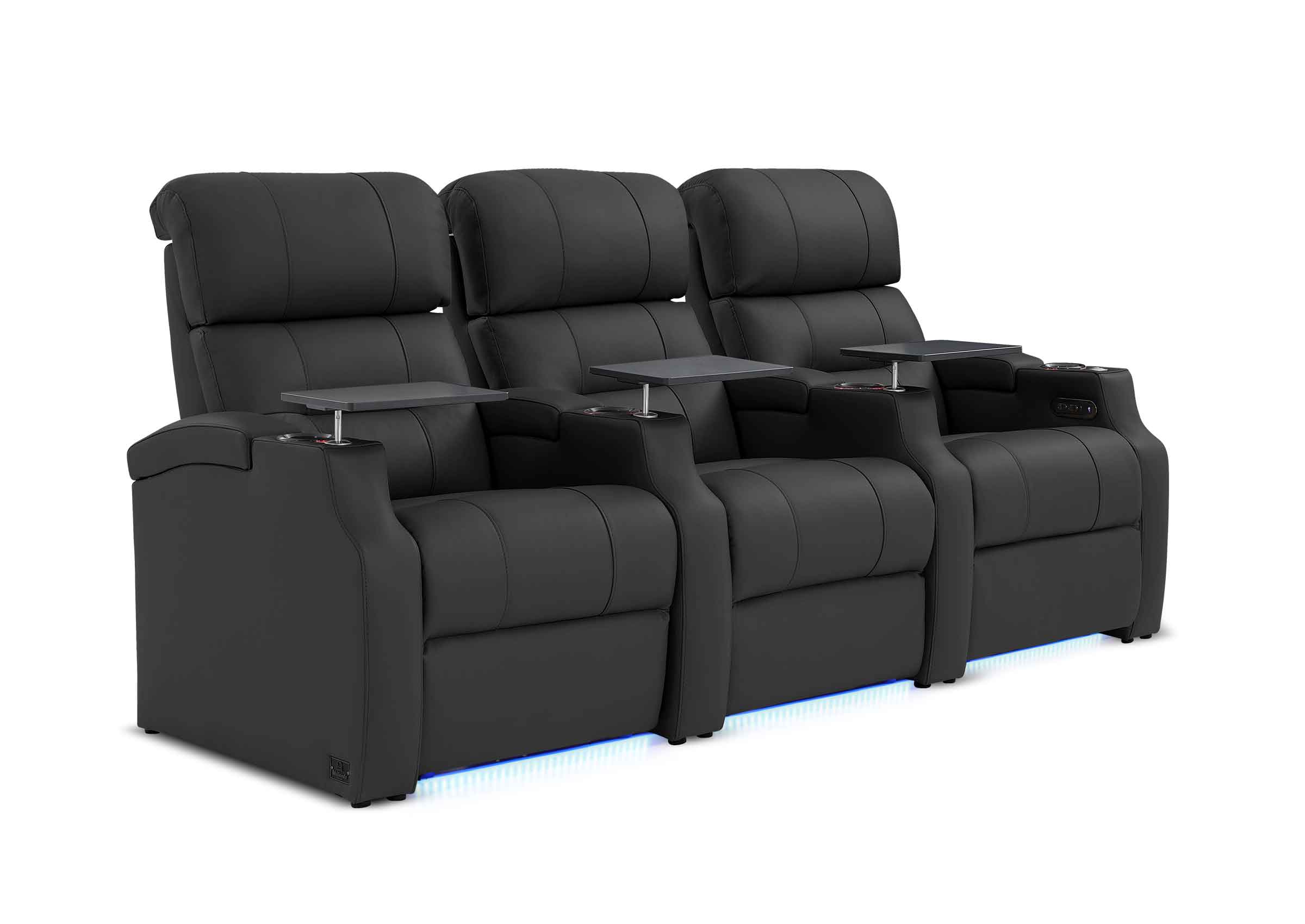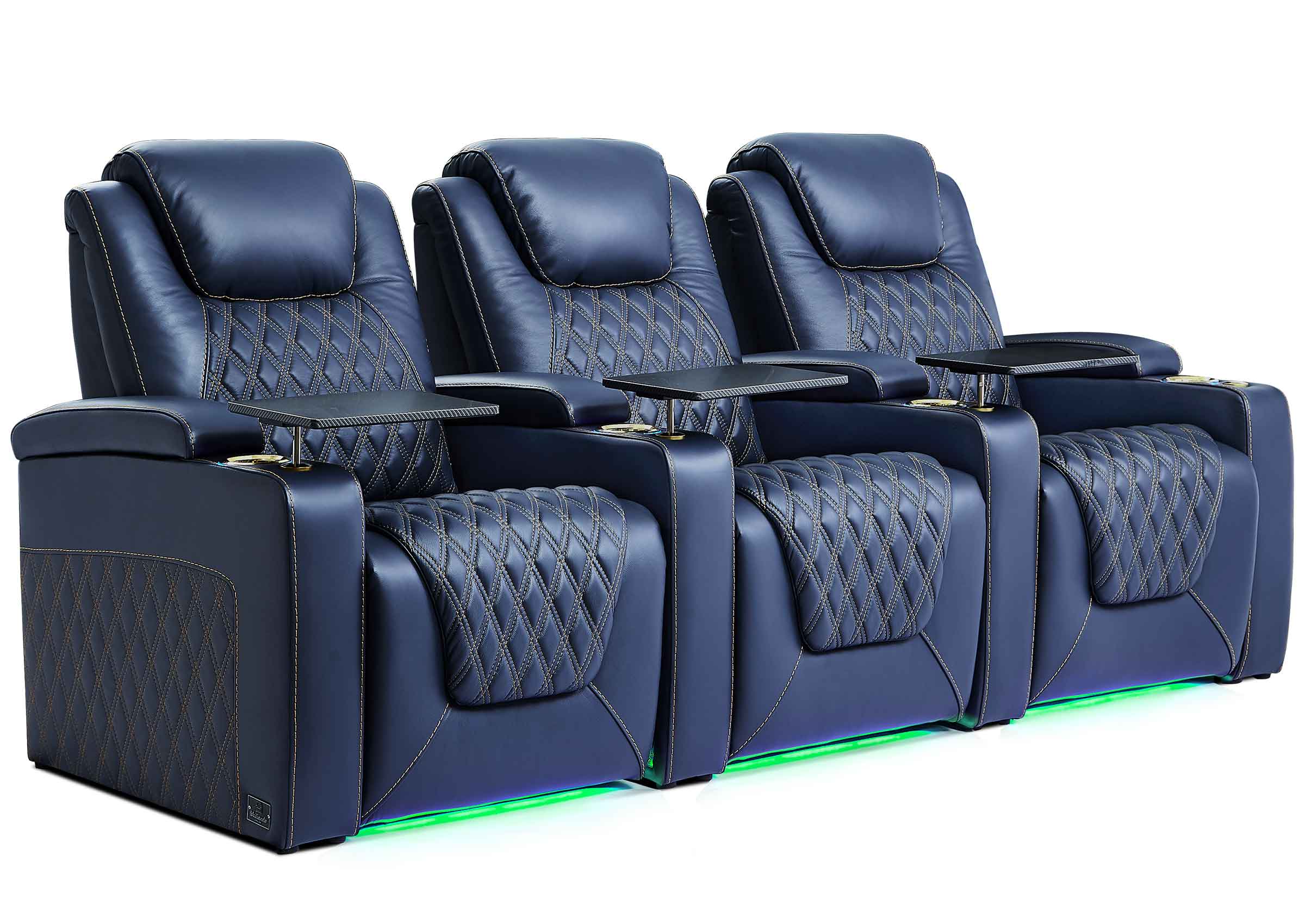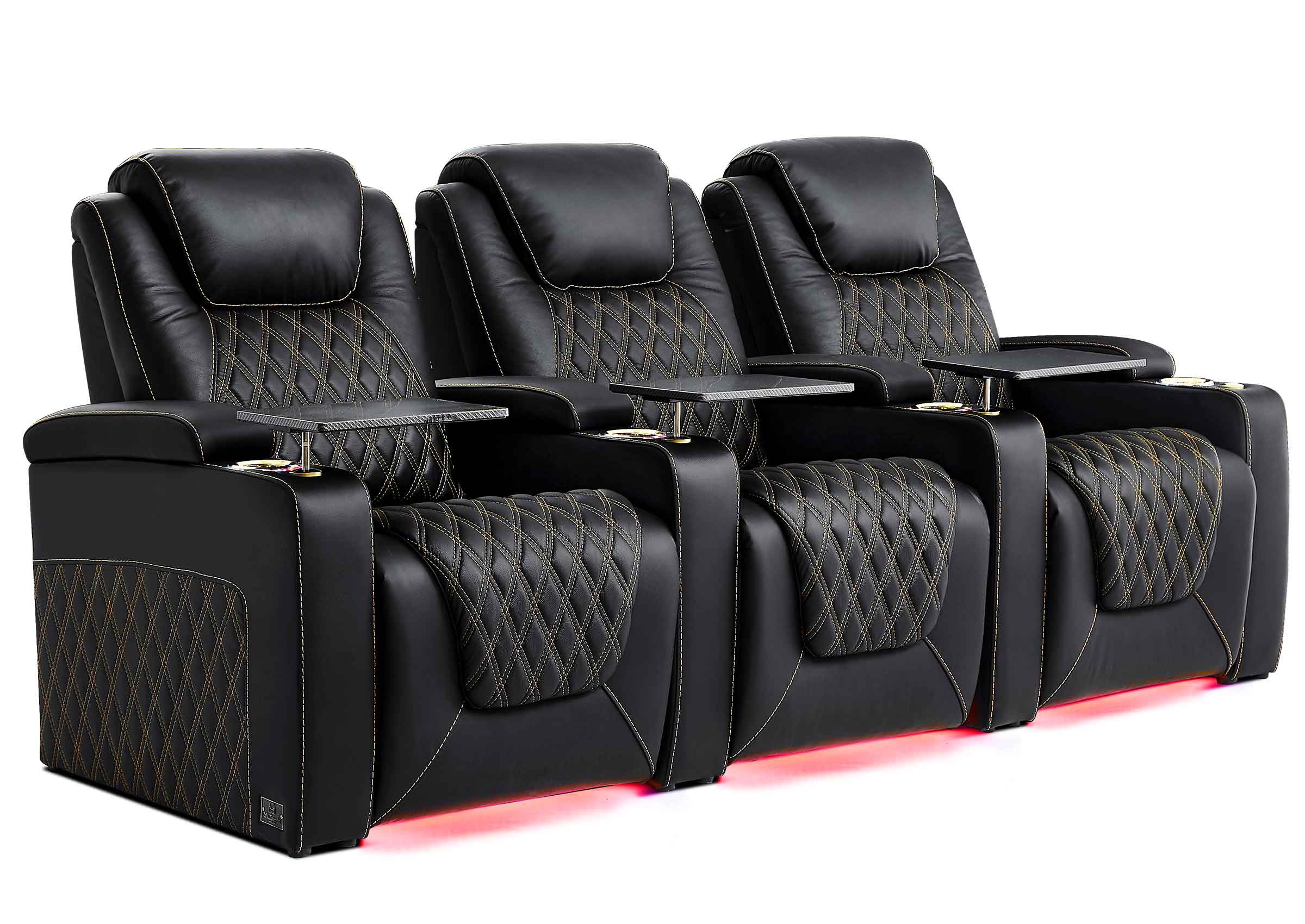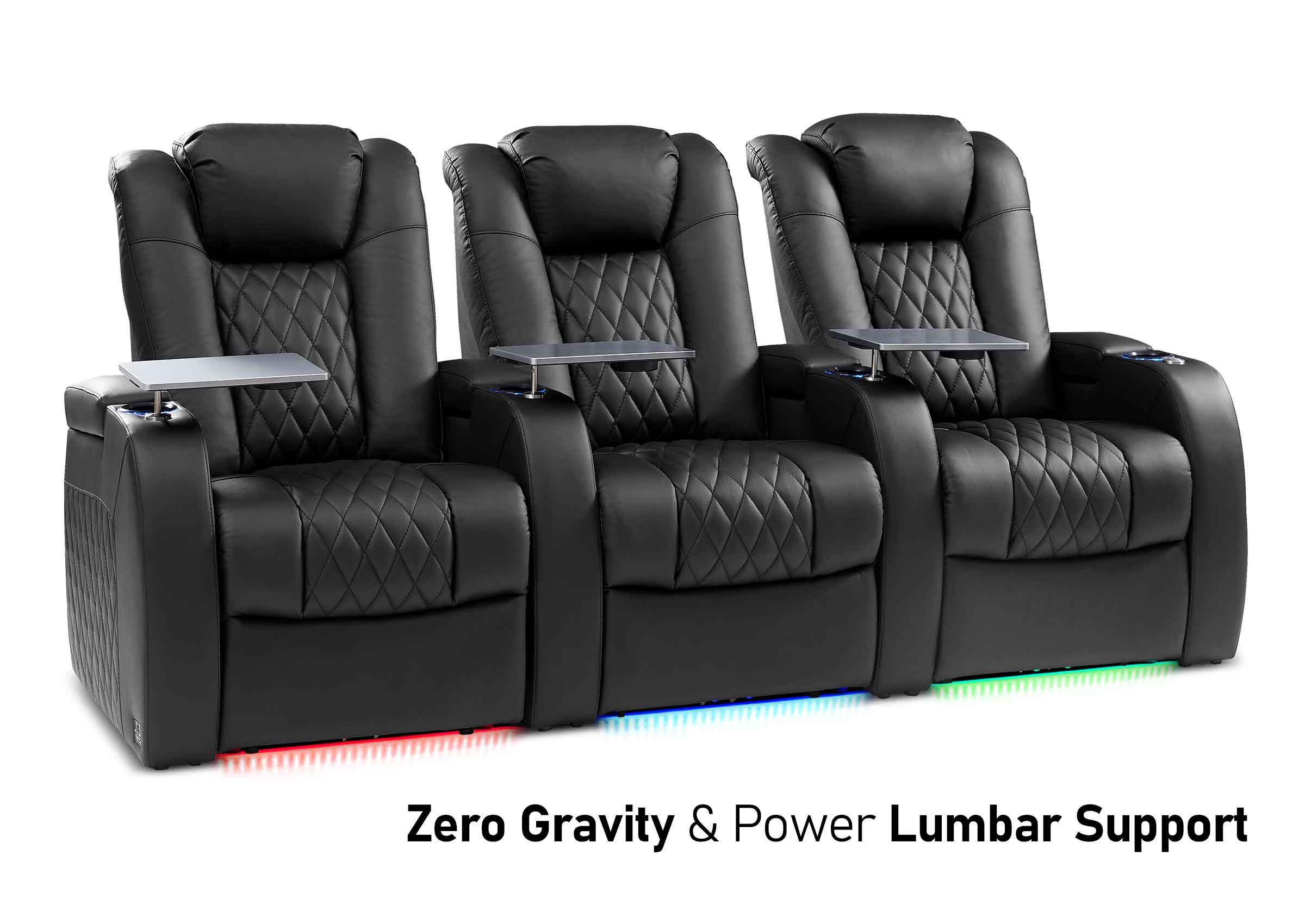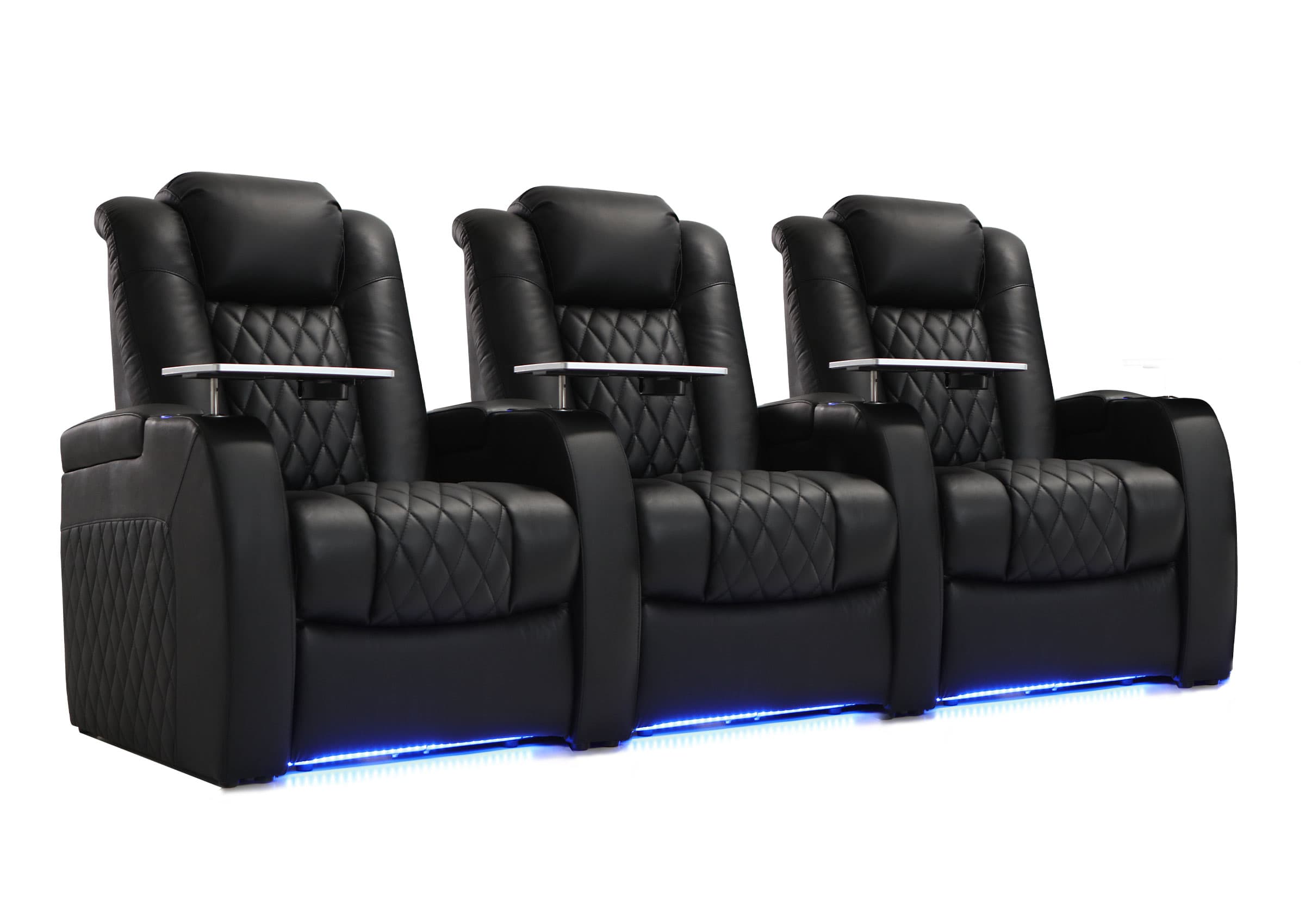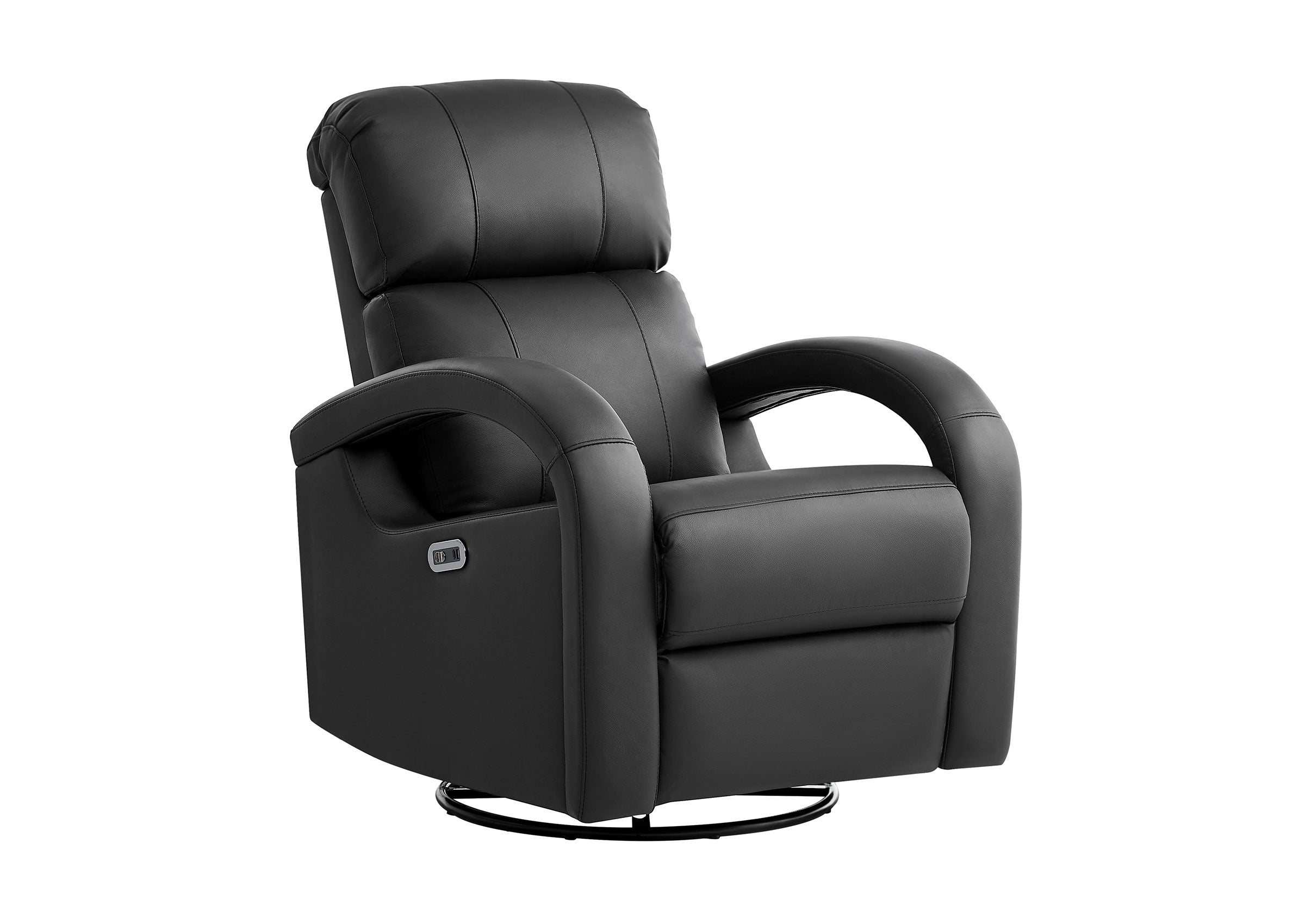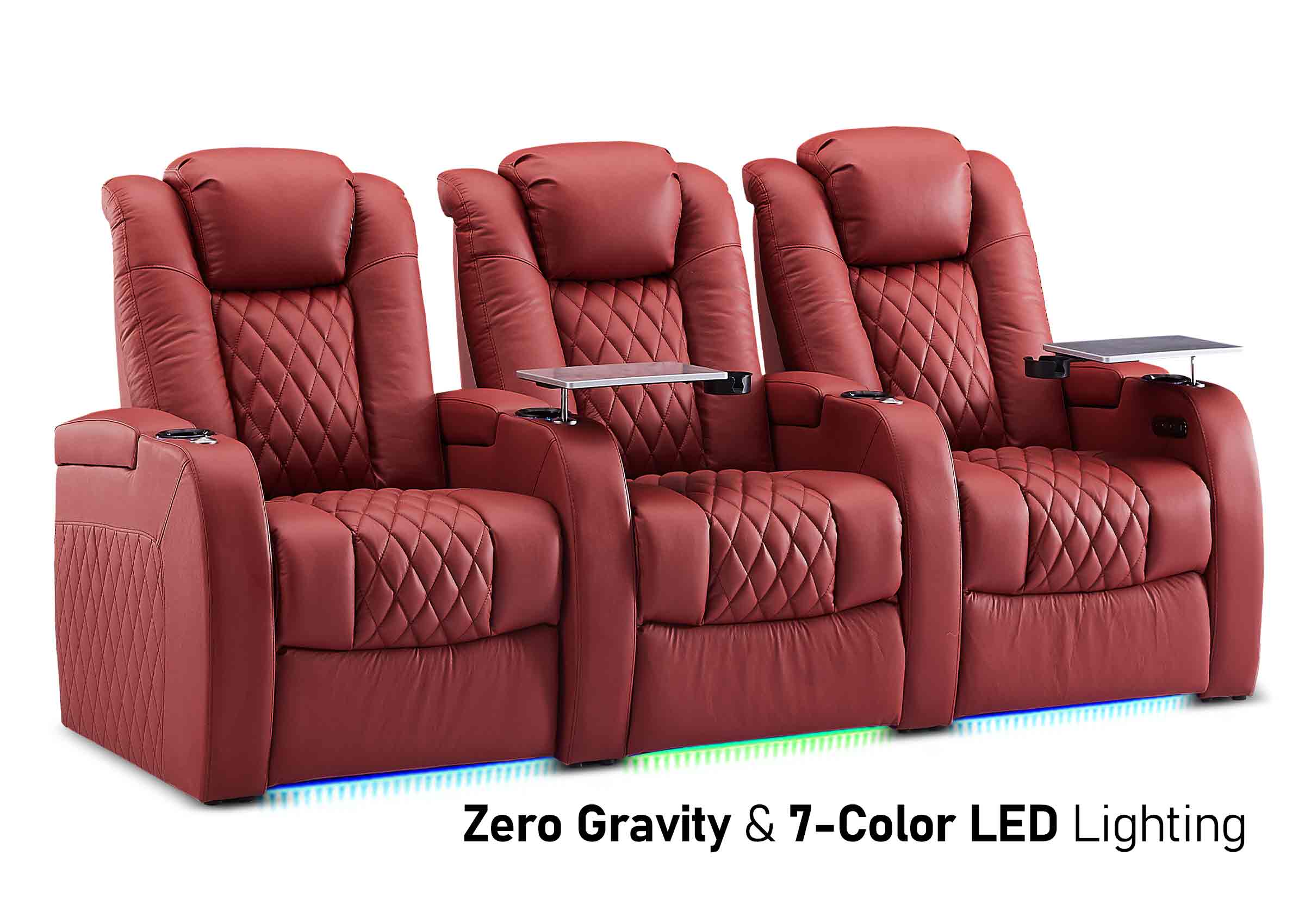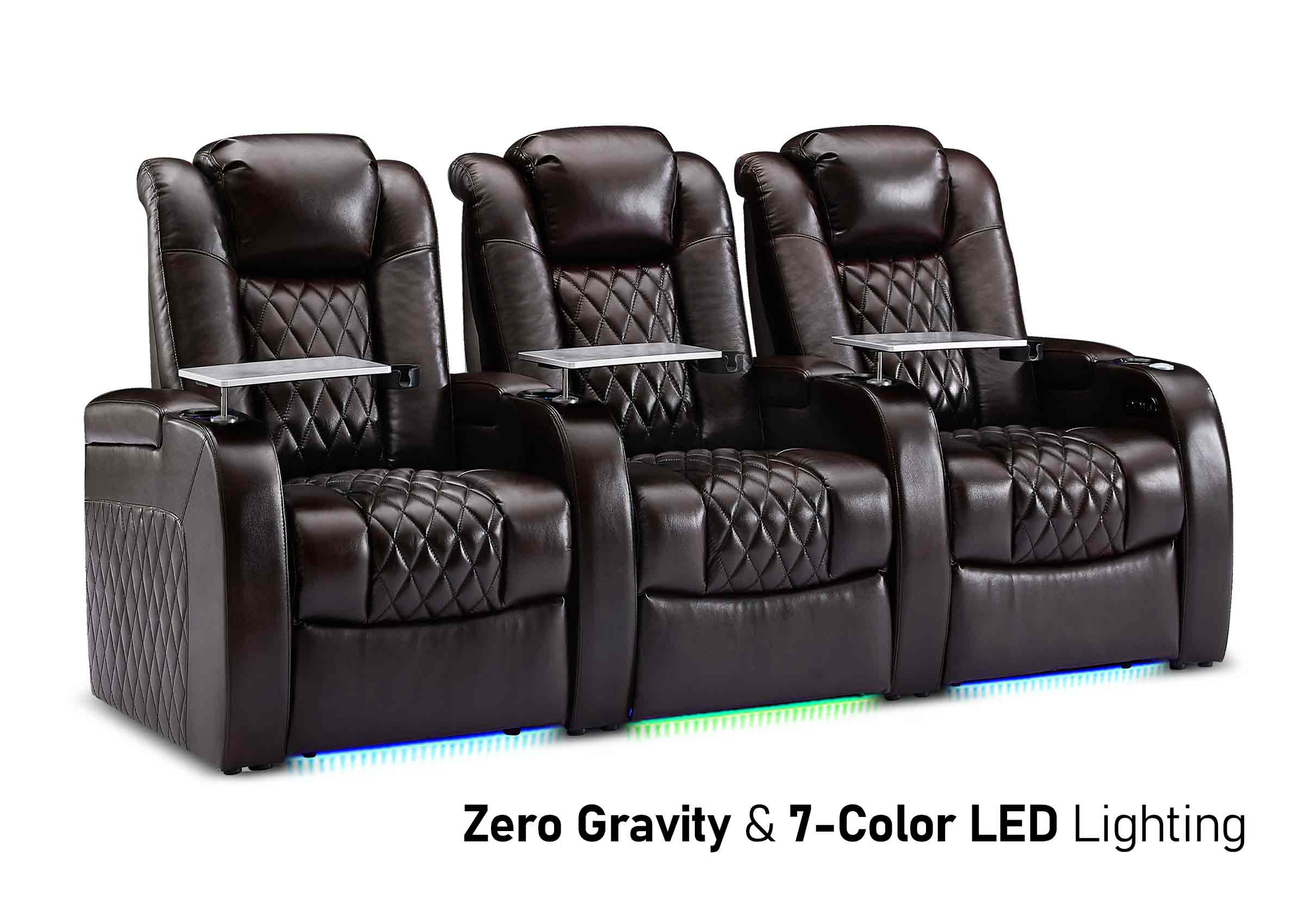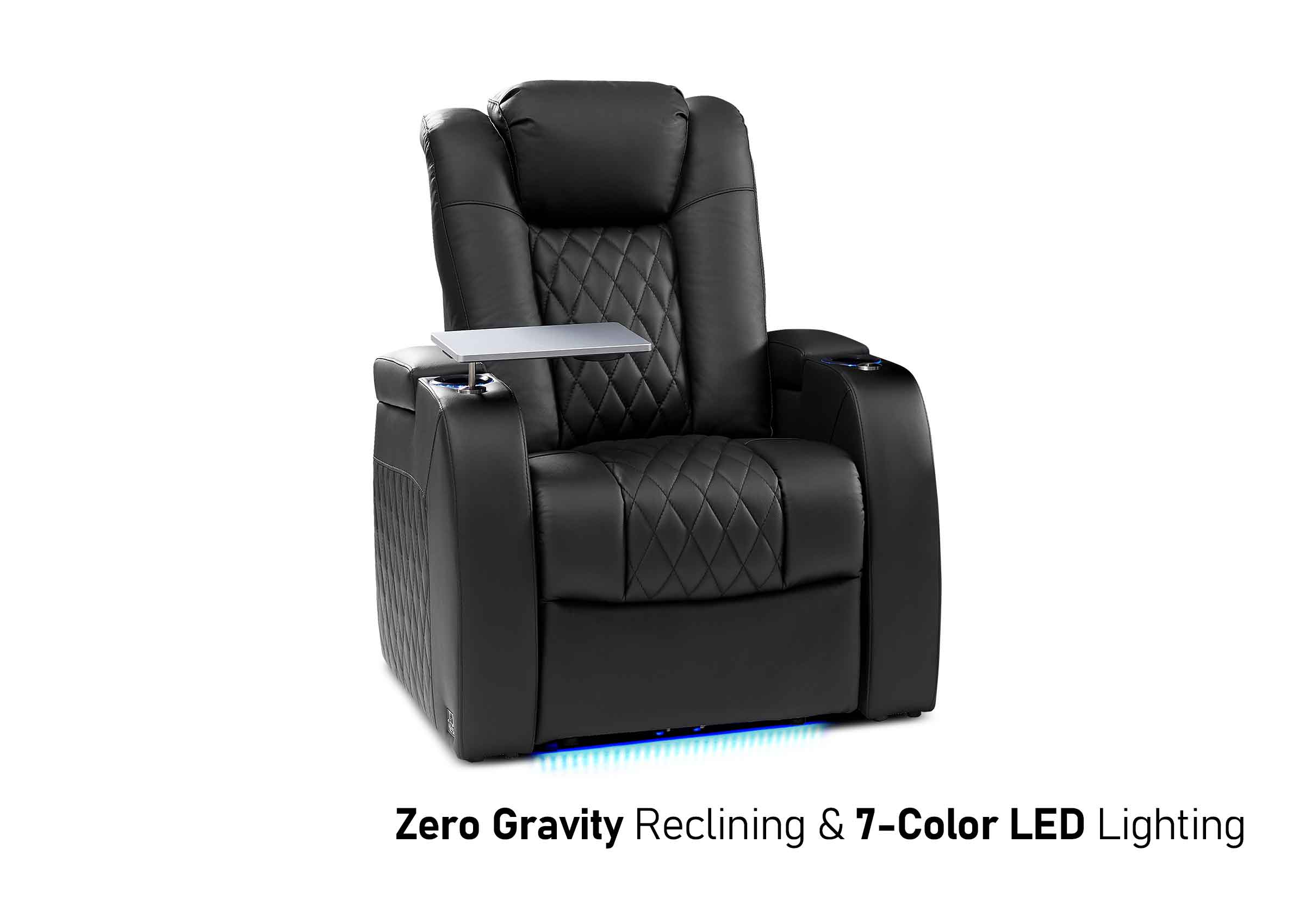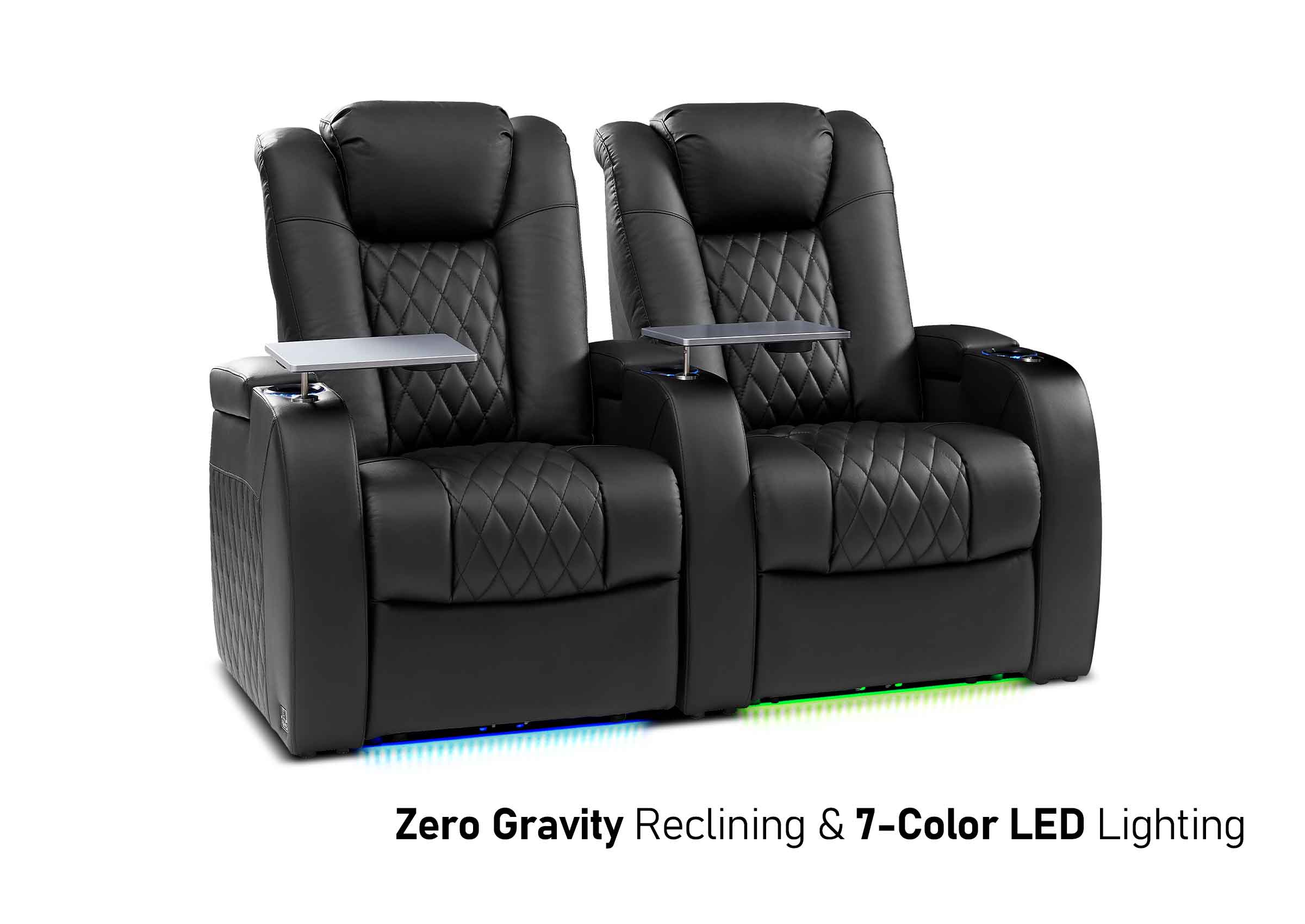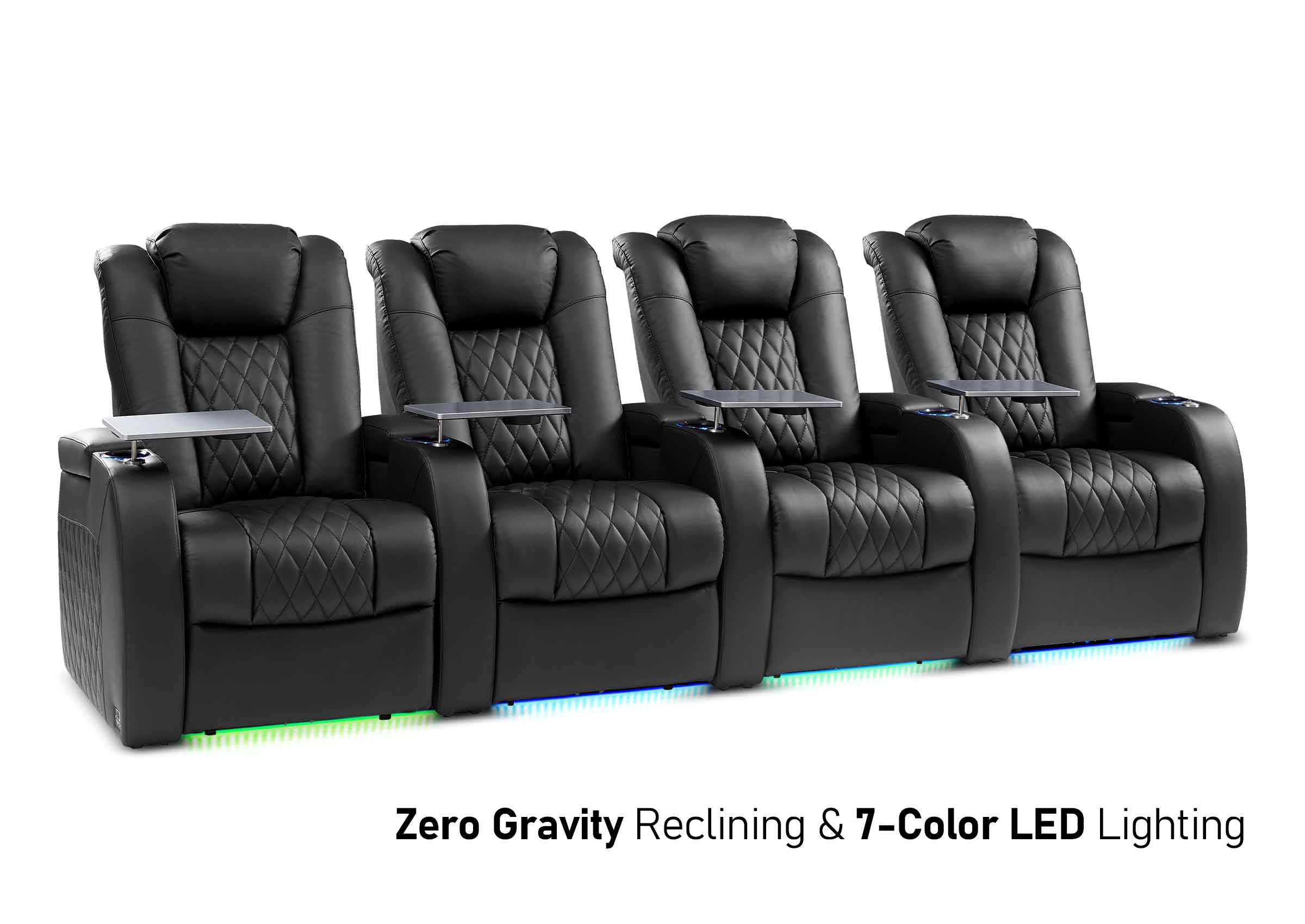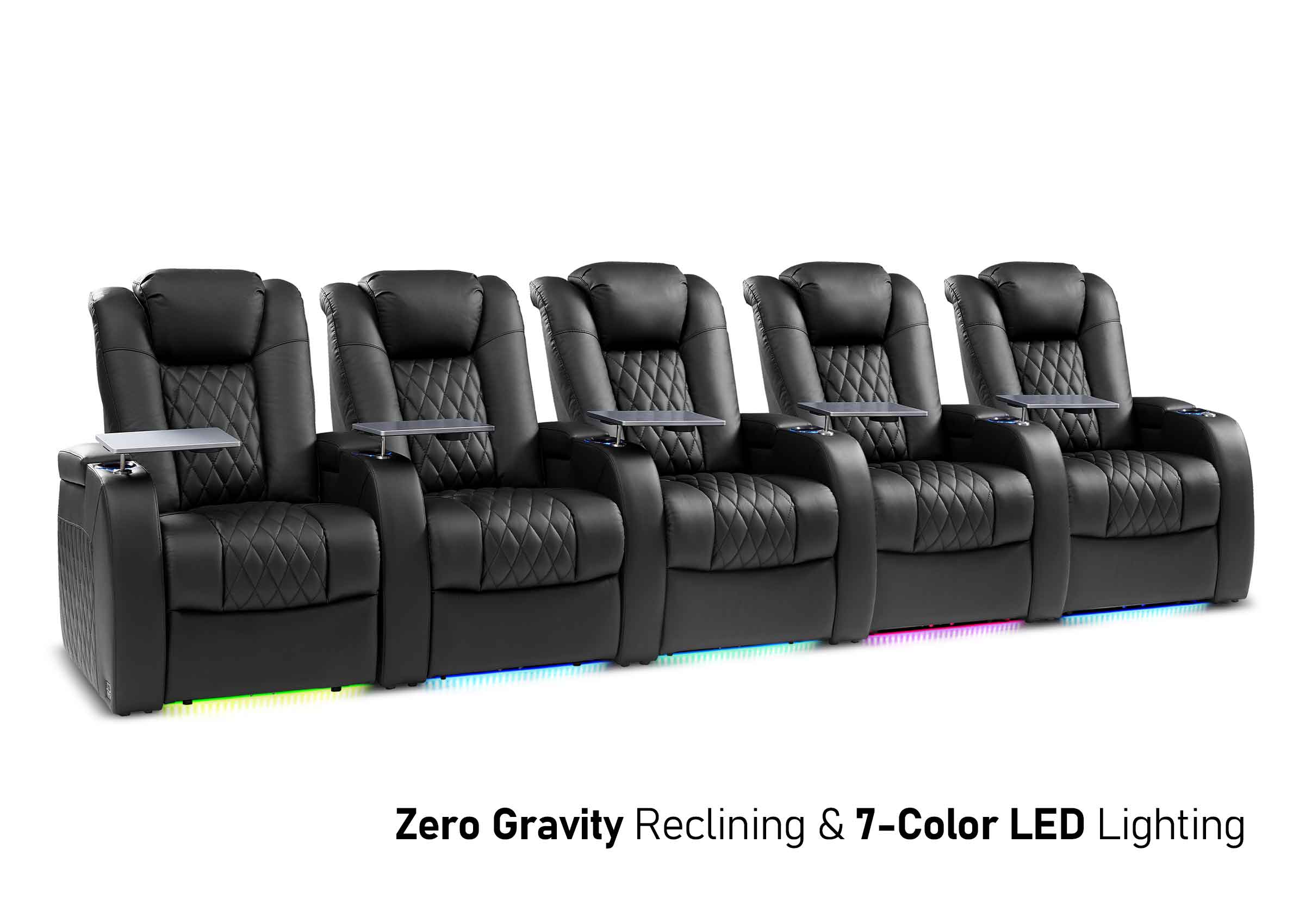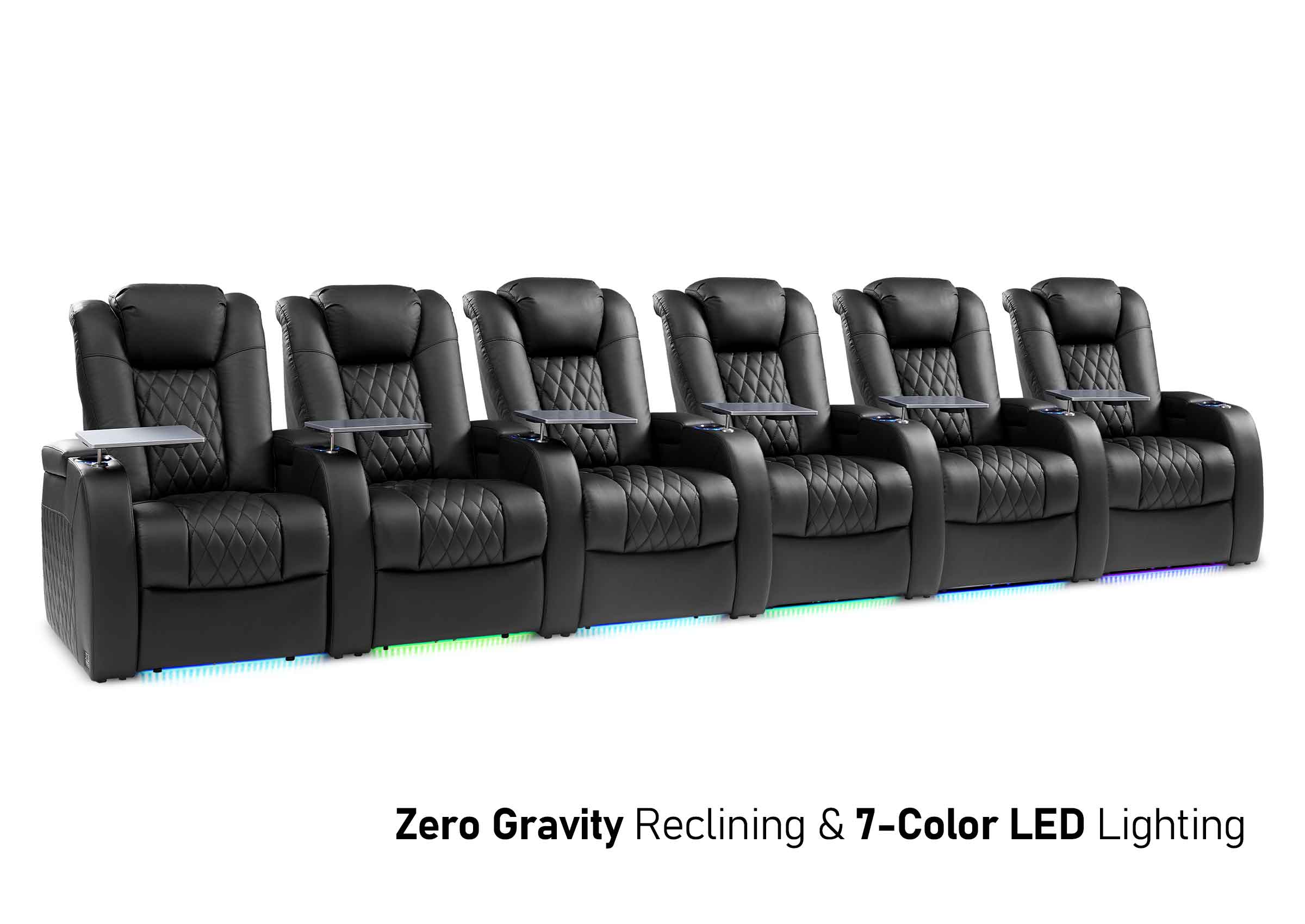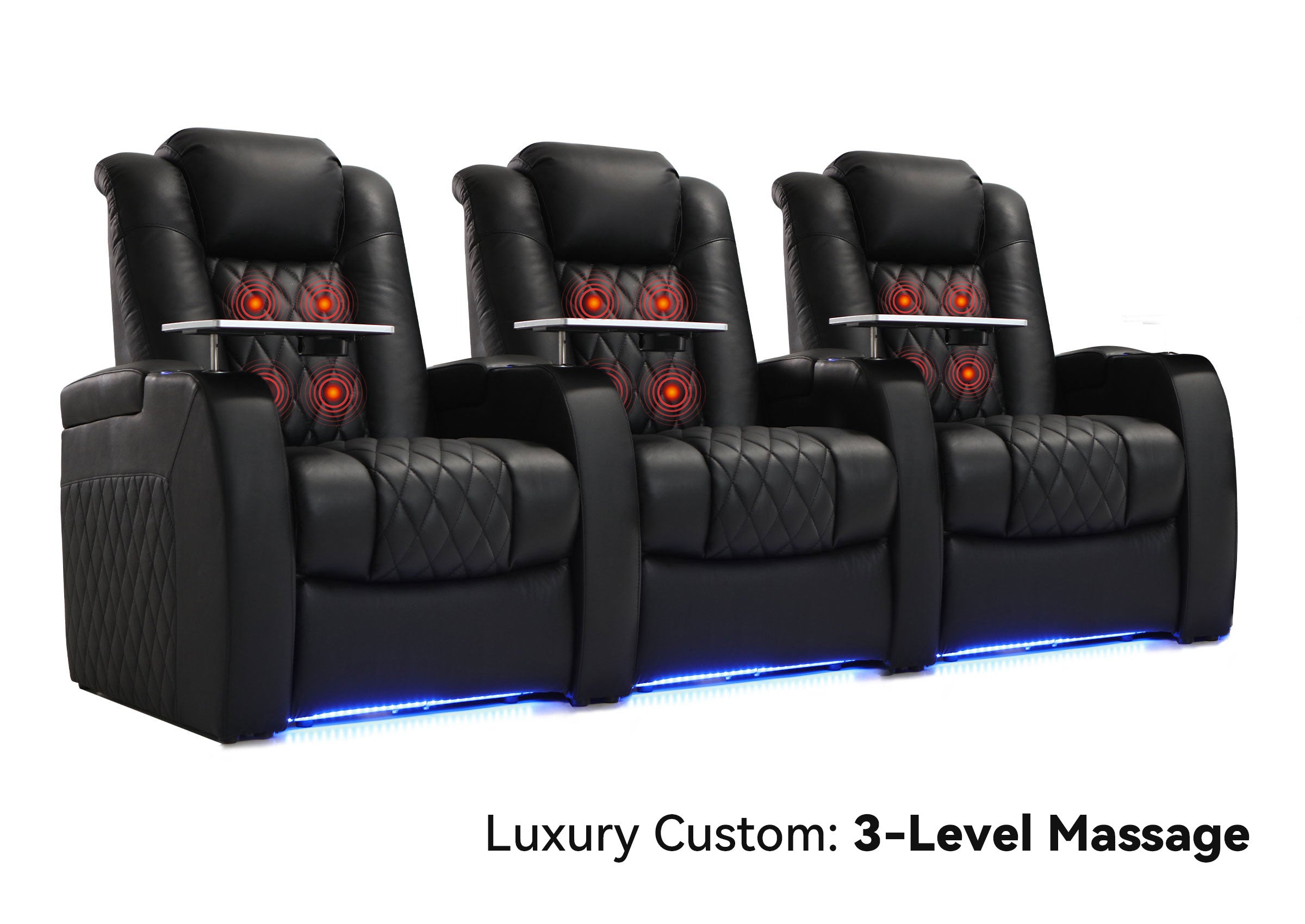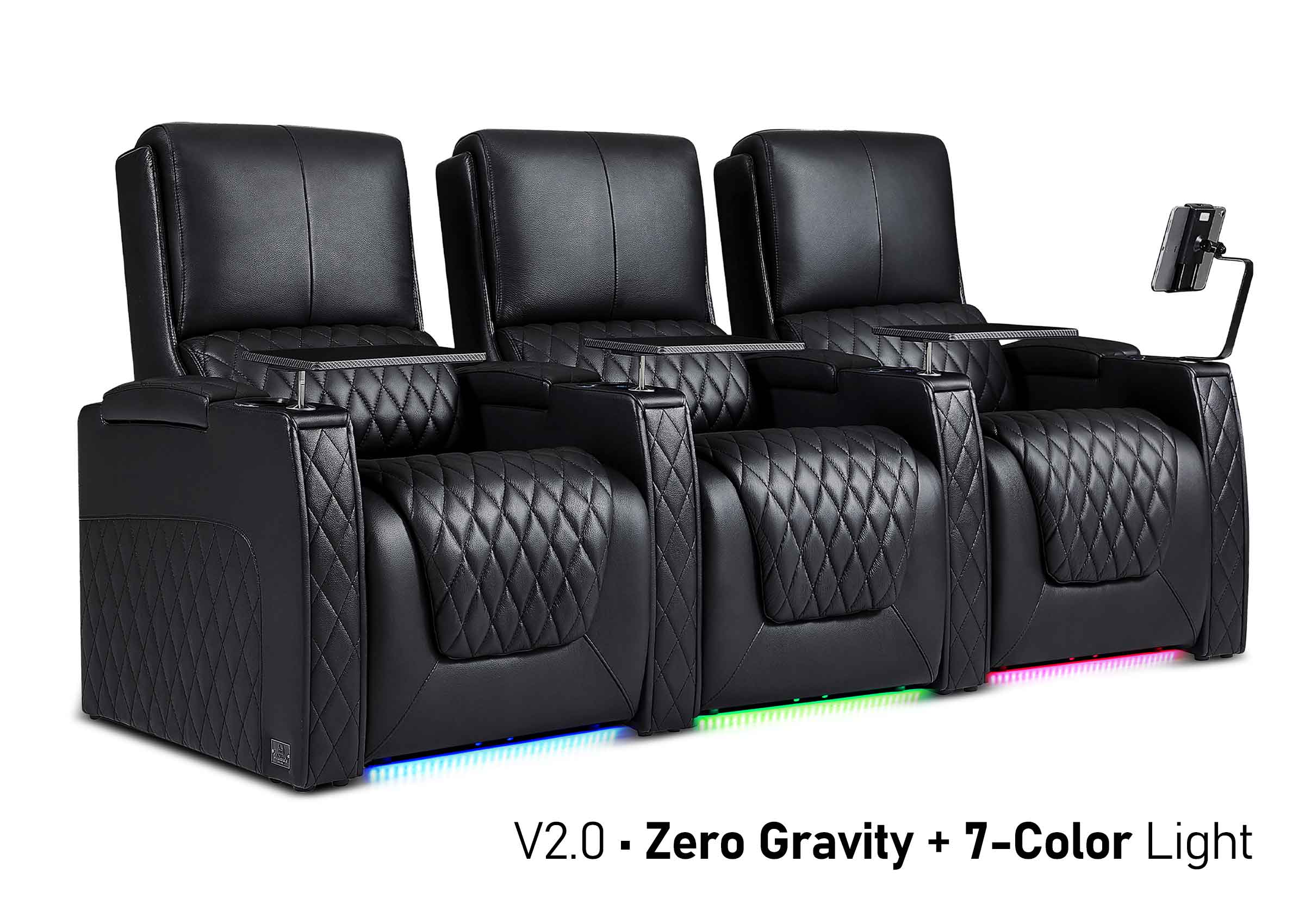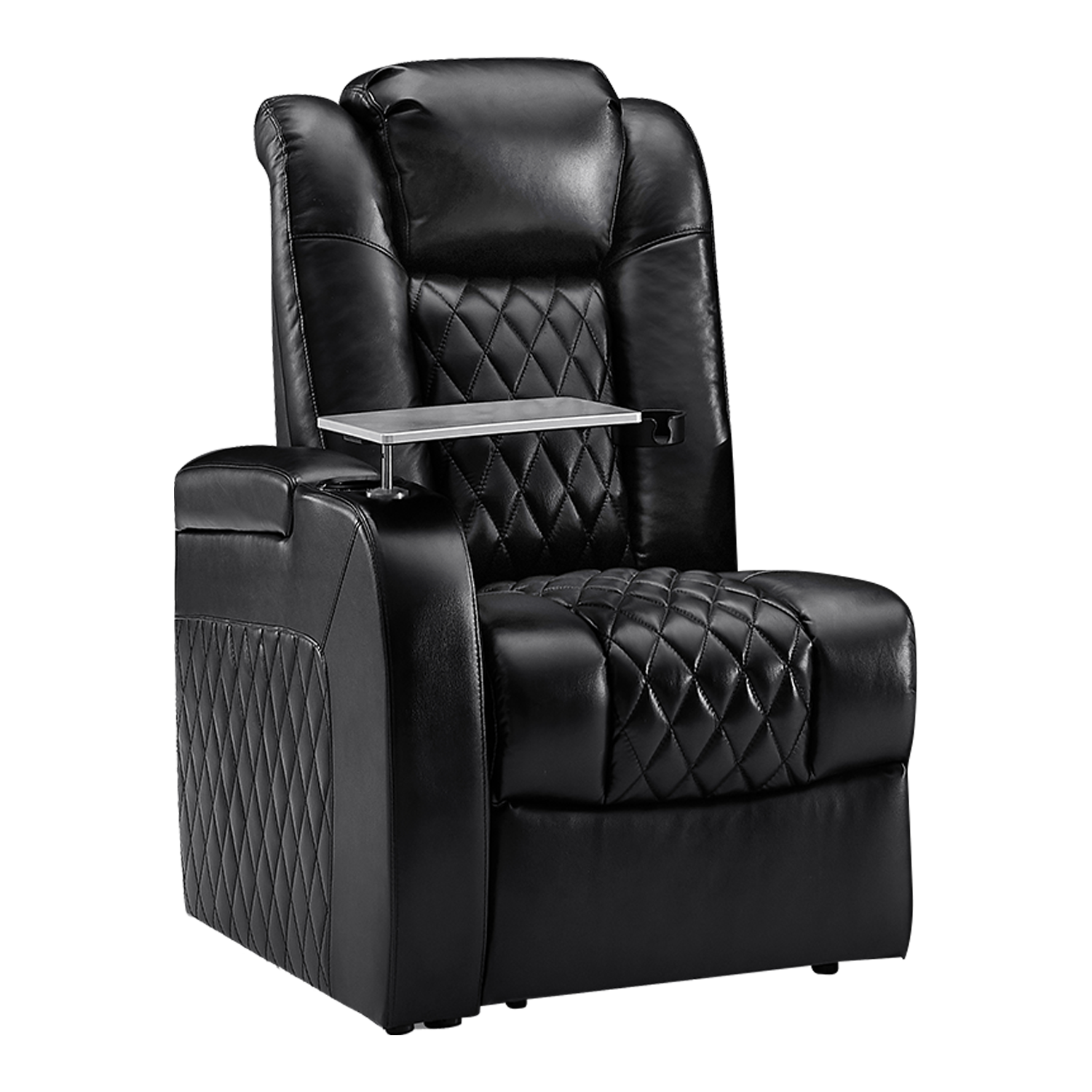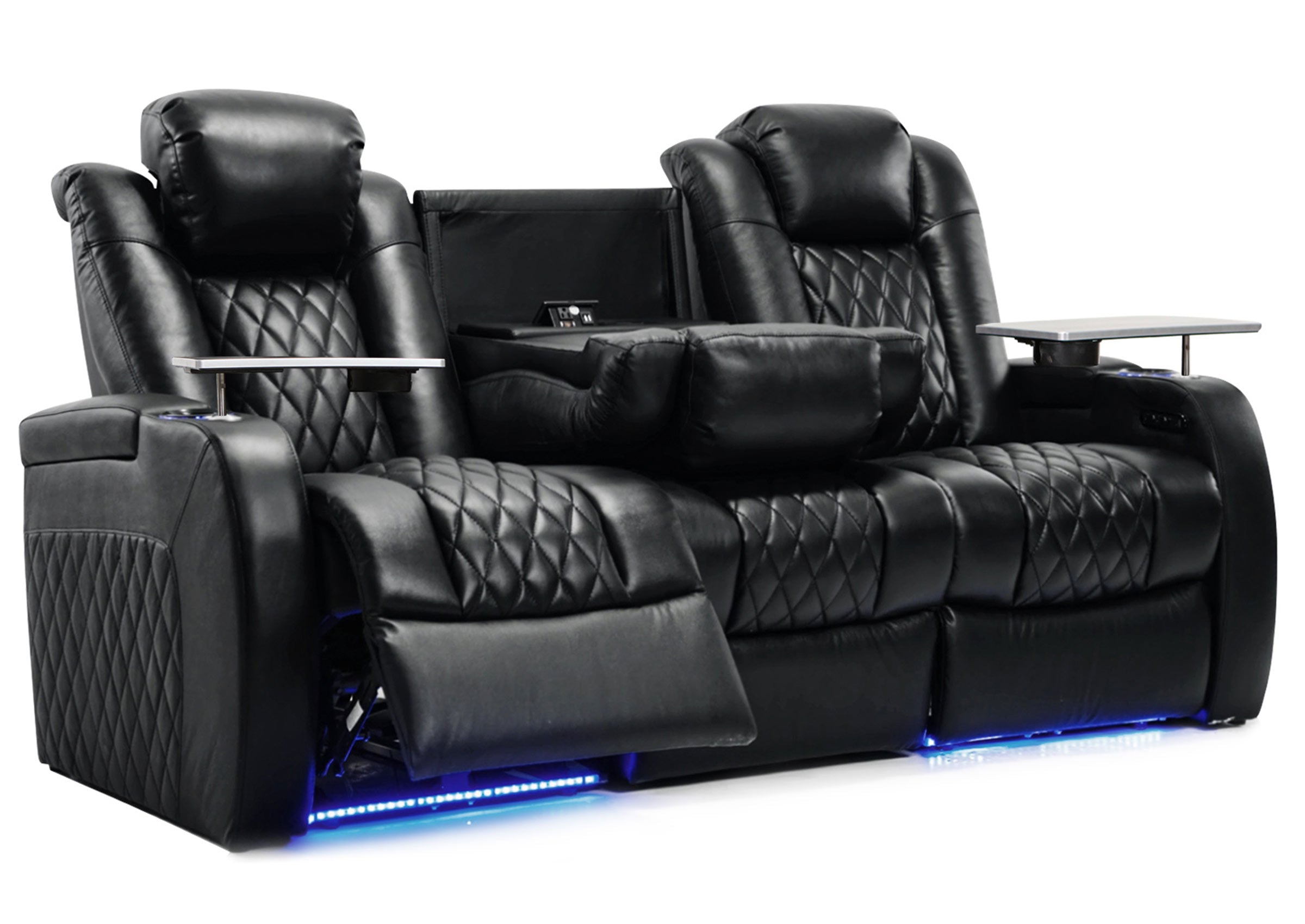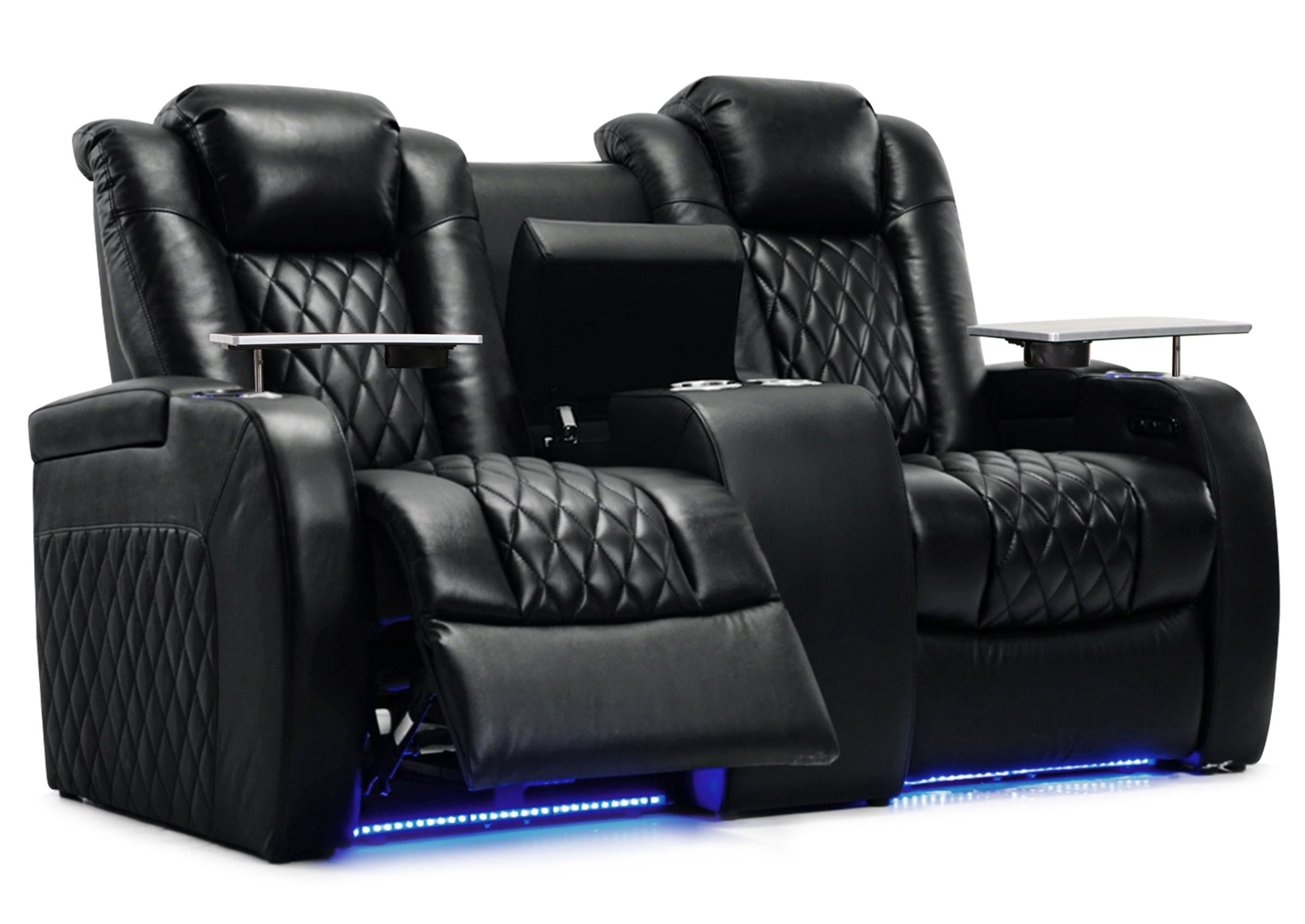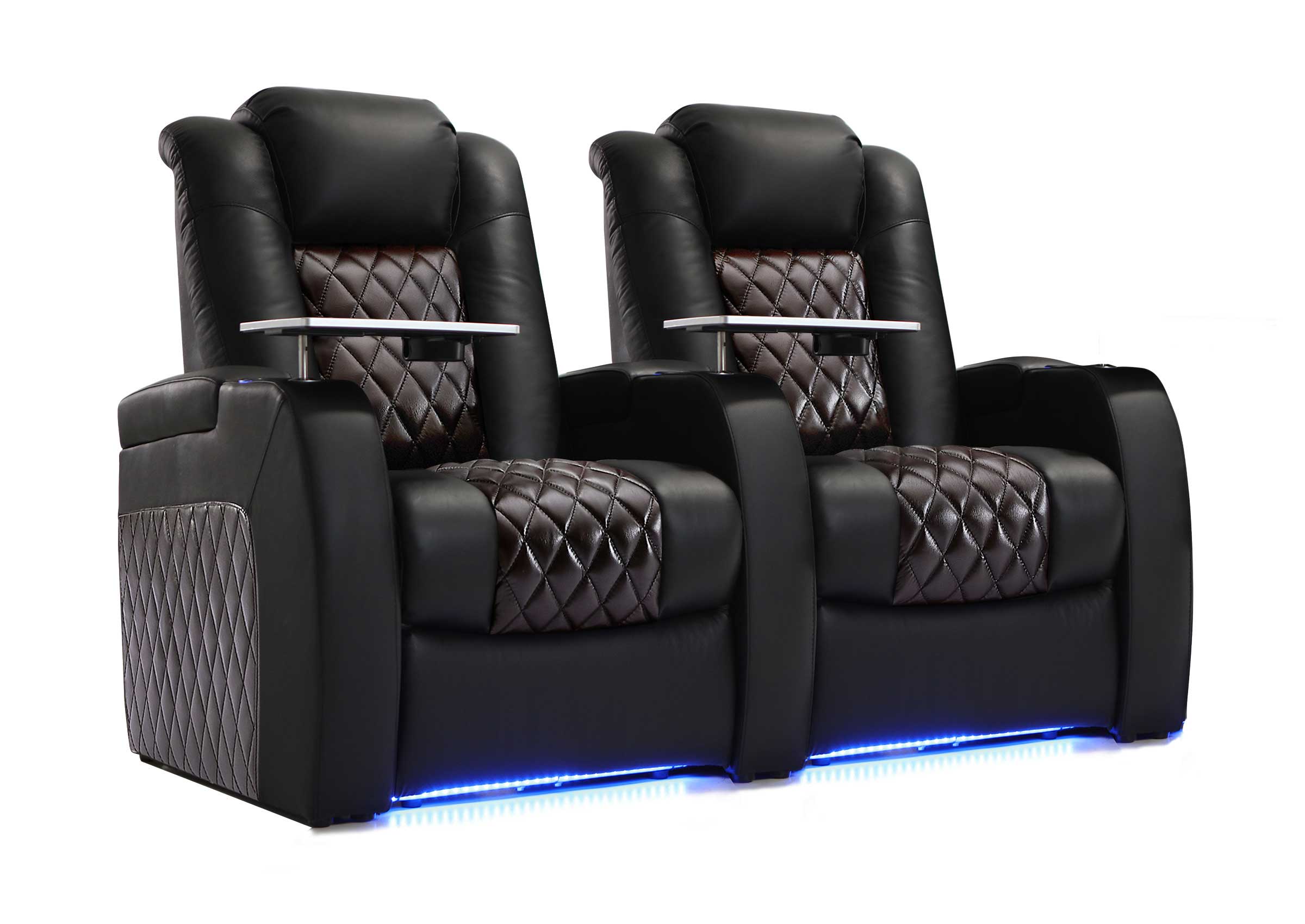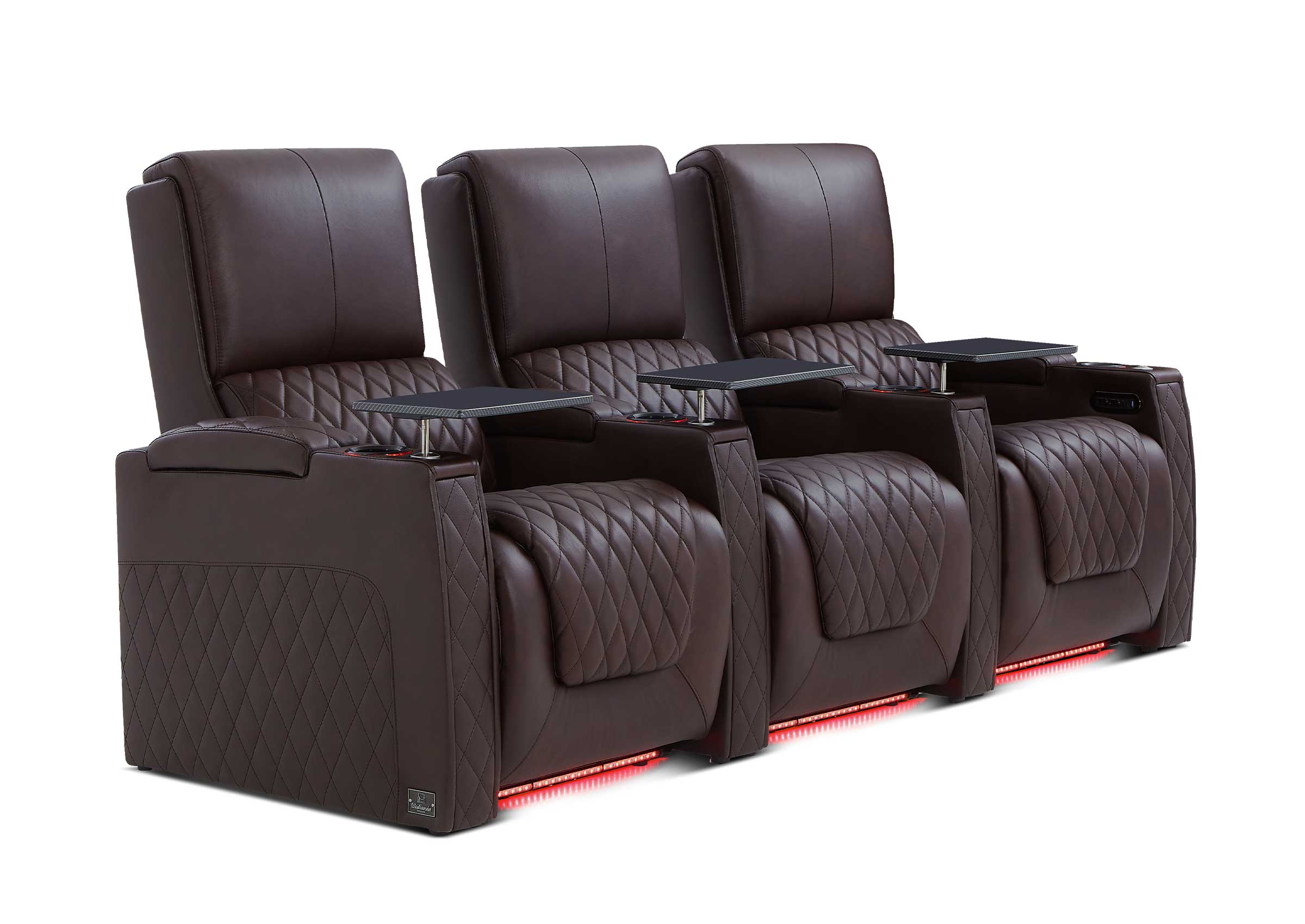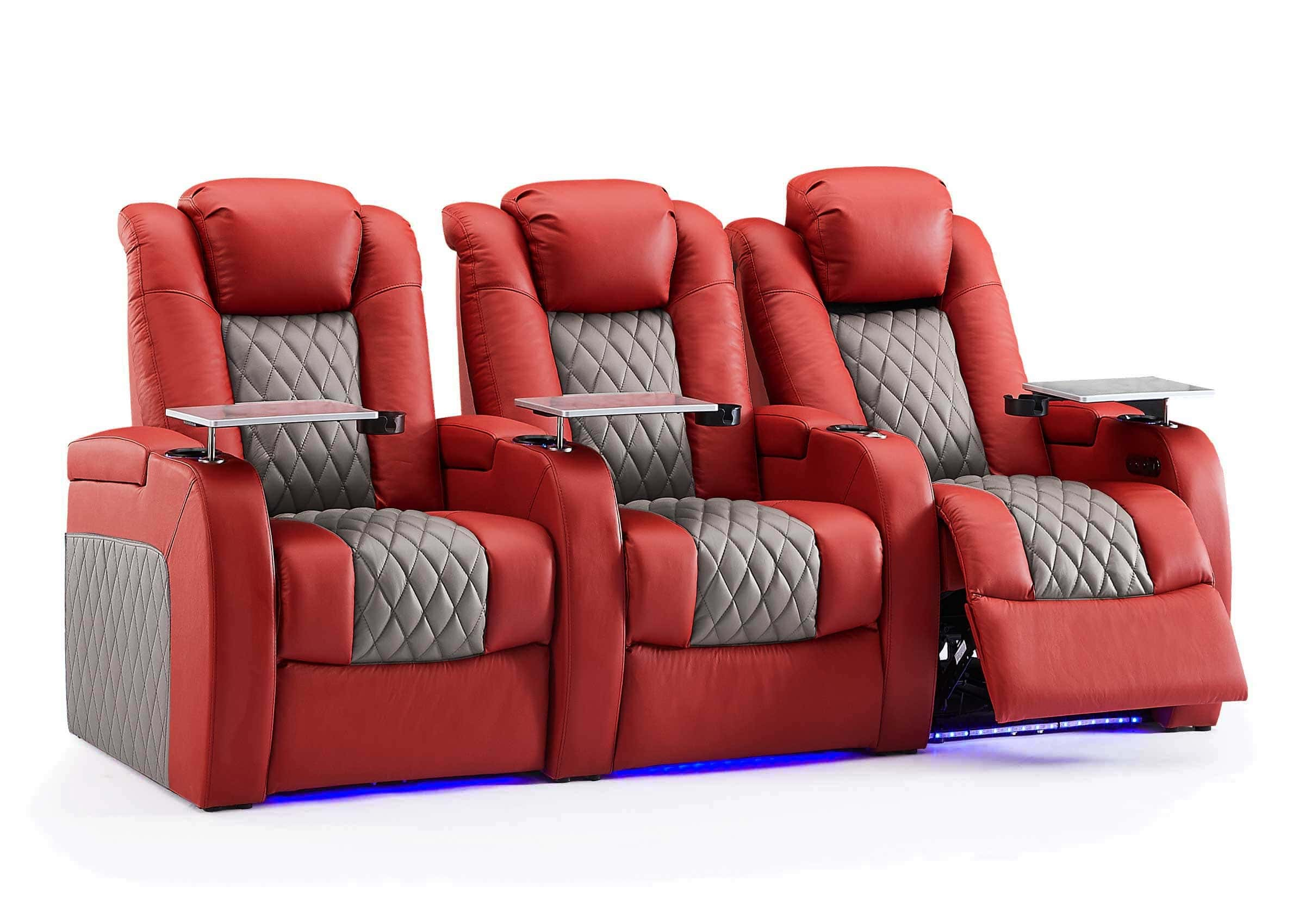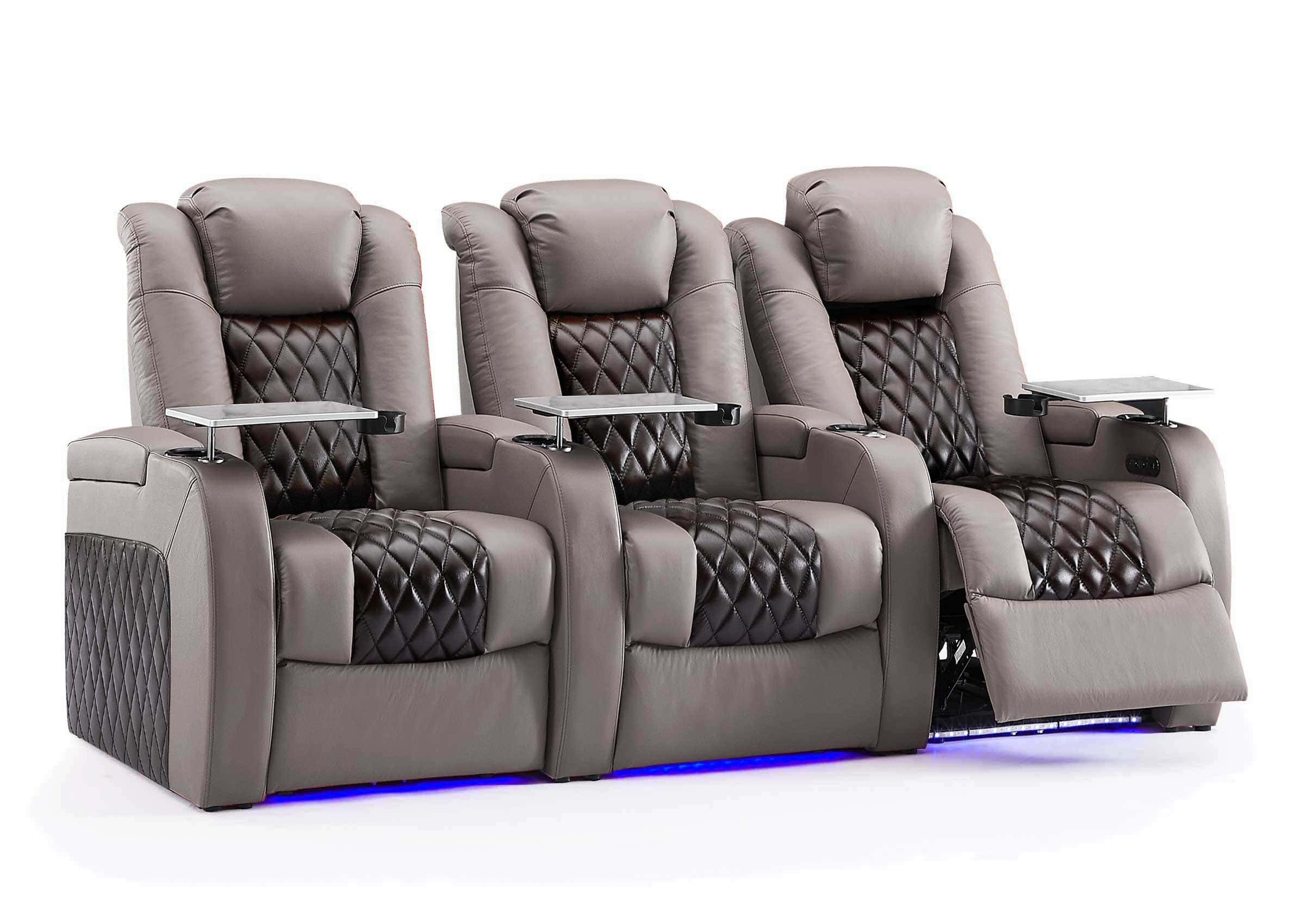The success of a home theater depends on more than just a high-tech screen and sound system. Comfortable seating plays a vital role in creating an immersive viewing experience. Even with top-notch audiovisual equipment, uncomfortable seating can affect your enjoyment and concentration when watching a movie. To make home theater seating more comfortable, you need to optimize the ergonomic design of the seats, material selection, additional features, and the spatial layout of your home theater.
Choosing the Most Comfortable Home Theater Chairs

Good theater seats are key to a comfortable home theater. Here's what to consider when choosing your seating.
Types of Home Theater Seats
There are three main types of home theater seating:
- Recliners: These let you adjust your position and often have cup holders.
- Sofas and Sectionals: Good for a casual feel and fitting more people.
- Custom Theater Seats: Made for home theaters, with features like power recline and USB ports.
Picking the Right Material
The seat material significantly impacts both the immediate comfort and the long-term enjoyment of your home theater seating:
- Prefer leather, which is breathable and durable, easy to clean and looks more premium
- The seat is made of high-density rebound sponge or mixed rubber foam material, which has both support and resilience and is not easy to collapse after sitting for a long time.
- Microfiber is soft and breathable, but needs more cleaning.
- Velvet feels luxurious but can be hard to maintain.
Making Sure There's Enough Room
Beyond the tactile comfort provided by the material, the spatial arrangement of your seating is equally vital for an optimal viewing experience.
Think about the size of your room and how many people will use the theater. Leave at least 20 inches between rows of seats for comfort. Also, ensure the seats aren't too big for your space. This planning helps everyone move easily and enjoy the movie without feeling cramped.
Reasonable row spacing and aisle design
- The recommended distance between each row of seats is at least 1 meter to ensure leg extension and easy passage. If space is limited, choose narrow-frame seats or folding designs.
- When there are multiple rows, use a stepped rear seat (10-15 cm per row) to avoid blocking the view.
- The angle between the seat and the screen is controlled at 30°-40°. When sitting, the line of sight and the center line of the screen are at a slight downward angle (within 15° up and down) to avoid neck fatigue from leaning forward or backward.
Seats That Support Your Body
Good seats should support your body properly. Look for seats with lower back support to prevent discomfort during long movies. Adjustable headrests are great for your neck, especially when reclining. Ideally, you should be able to sit with your feet flat on the floor and your back against the seat. This position helps you stay comfortable throughout even the longest film process.
You can choose an electrically adjustable chair that supports fine adjustment of backrest angle, headrest height and footrest extension to accommodate different heights and viewing postures.

How to Make Your Home Theater Seats More Comfortable
The right accessories can greatly improve your home theater seats. Here's how to make your viewing experience more enjoyable.
1. Cushions and Pillows
Add cushions and pillows to your seats for extra comfort. Throw pillows can support your lower back or neck. Memory foam cushions can improve older seats. Use different sizes to suit various body types and preferences.
2. Warm Blankets
Keep soft blankets near your seats, especially for cooler evenings. Choose materials like fleece or microfiber for comfort. Blankets add a cozy feel to your theater space.

3. Headrests and Footrests
Adjustable headrests help your neck during long movies. If your seats don't have them, you can buy attachable ones. Footrests let you lift your feet, which helps circulation. Consider matching ottomans for a luxurious touch.
4. Back Support
Lumbar support cushions can prevent back pain. Look for cushions made for theater seats or ones with straps to stay in place. Memory foam often works best for both support and comfort.
Try different combinations of these accessories to see what you and your guests like best. The right setup will help you relax and enjoy your movies without discomfort.

Arranging Your Home Theater for the Best View
Getting your seating layout right can make a big difference in how much you enjoy your movies.
1. Clear View for Everyone
Make sure each seat has a good view of the screen. Avoid placing seats where pillars or furniture block the screen. If possible, use risers for back rows so people can see over those in front.
2. Right Distance from the Screen
Sitting too close or too far from the screen can strain your eyes. A good rule is to sit about 1.5 to 2.5 times the width of your screen away. For example, if your screen is 60 inches wide, the best seats would be 90 to 150 inches (7.5 to 12.5 feet) away.
3. Proper Viewing Angle
The angle at which you view the screen matters. Try to keep all seats within a 36-degree angle from the center of the screen. This helps avoid neck strain and ensures a clear picture for everyone.
4. Comfortable Spacing
Leave enough room between seats and rows. Aim for at least 20 inches between rows so people can move easily. If you have recliners, make sure there's enough space when they're fully extended.
5. Flexible Seating Options
Consider including some movable seating, like bean bags or floor cushions. This allows for more people during big events and adds flexibility to your setup.

Taking Care of Your Home Theater Seats
You've invested in comfy seats for your home theater. Now, you should make sure they stay in great shape for years to come.
1. Regular Cleaning: A Little Goes a Long Way
Don't wait for spills to clean your seats. A quick weekly vacuum can prevent dirt buildup. For leather seats, wipe them down with a damp cloth. Fabric seats might need a gentle brush. Always check the manufacturer's instructions first.
2. Dealing with Spills and Stains
Accidents happen, especially during exciting movie scenes. Clean spills right away to prevent staining. Keep a cleaning kit handy with appropriate solutions for your seat material. For tough stains, you might need to call in the pros.
3. Giving Your Seats a Checkup
Every few months, give your seats a thorough once-over. Check for loose screws, worn areas, or any mechanical issues if you have powered seats. Catching problems early can save you from bigger headaches later.
4. When to Call for Backup
Some issues are best left to the experts. If you notice strange noises from motorized parts, significant wear and tear, or if your seats just aren't as comfy as they used to be, it might be time for professional servicing.
5. Protecting Your Investment
Consider getting a warranty or protection plan for your seats, especially if they have electronic components. Read the fine print to know what's covered. Some plans even offer regular maintenance checks.
Taking good care of your home theater seats isn't just about keeping them clean. It's about preserving your comfort for all those movie nights to come. With a bit of regular attention, your seats will stay cozy and inviting for years.

Create Your Perfect Movie Spot
Comfortable seats are essential for enjoying the home theater experience. By optimizing and adjusting in the above ways, home theater seats can not only provide you with "invisible comfort" (forgetting the existence of the seats when watching movies for a long time), but also form an overall synergy with the audio-visual system and space design to create an ultimate immersive experience, turning your home theater into a comfortable paradise, allowing you to enjoy endless movie nights.








